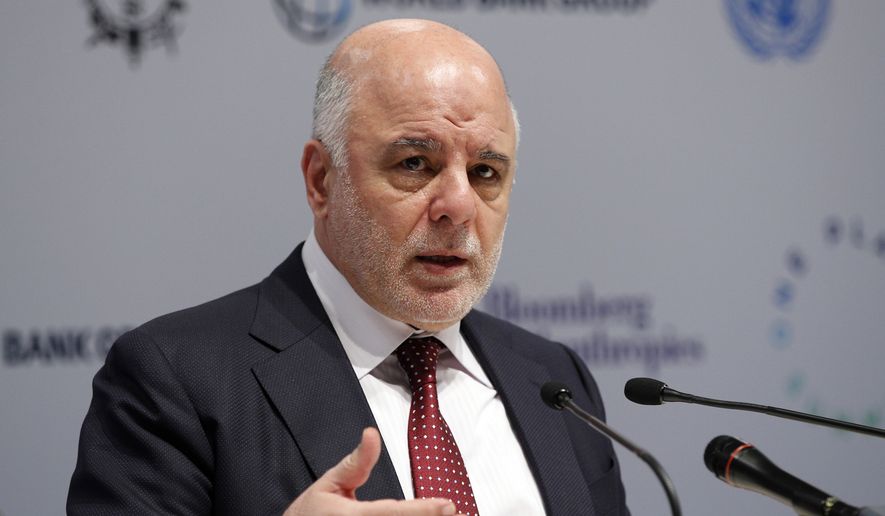The U.S. military says the fate of its ongoing presence in Iraq will be decided in “coordination with” and will depend on the “approval of” the government in Baghdad.
The comments by Col. Ryan Dillon, a spokesman for the U.S.-led coalition that battled the Islamic State in Iraq, came in response to Iraqi parliament’s demand Thursday that a timeline be set for the pullout of foreign troops from the country.
Iraqi Prime Minister Haider al-Abadi declared victor over ISIS in December. But as many as 5,000 U.S. troops are still stationed in Iraq, and the parliament in Baghdad voted by overwhelming majority Thursday that Mr. Abadi must now establish a schedule for their withdrawal.
In response, Col. Dillon told Reuters that the continued presence of U.S. forces “will be conditions-based, proportional to need, in coordination with and by the approval of the Iraqi government.”
A Reuters report Thursday asserted that the the Iraqi parliament’s demand underscores a balancing act Mr. Abadi must conduct between the United States and Iran, his two biggest military allies who are themselves arch-adversaries.
There are no Iranian regular forces in Iraq, but there are Iranian-backed Shia Muslim militias allied with Mr. Abadi’s government, the news agency noted, adding that Thursday’s parliamentary vote — backed by all but a handful of 177 lawmakers present — was sponsored by lawmakers from the ruling Shia bloc in parliament.
Reuters quoted political analyst Ahmed Younis as saying the timing of the vote, ahead of high-stakes parliamentary elections slated for May in Iraq, was a “message from pro-Iran parties that they do not want American troops in Iraq forever.”
While Mr. Abadi himself is seeking a second term in the elections, other analysts say the Iran-backed militias in Iraq — inspired by the political success had in recent years in Lebanon by the Tehran-supported Hezbollah organization — are also gearing up to win seats in Iraqi parliament.
The heads of several of the Iran-backed militias banded together last fall to form a Shia political movement. Dubbed the Mujahedeen Coalition, the movement includes representatives from the Shia-led Badr Organization, Asa’ib Ahl al-Haq, also known as the Khazali Network, Kata’ib Hezbollah and other Shia militias that battled ISIS in Iraq under the banner of the so-called “Popular Mobilization Forces.”
Some believe the move threatens to exacerbate sectarian tensions between Iraq’s Sunni and Shia populations, while increasing concern in Washington over Iranian influence in Baghdad at a time when the Iraqi capital is already clashing with Kurds over their own semi-autonomous region in the country’s north.
Ahmad Majidyar, director of the Middle East Institute’s Iran Observed Project, told The Washington Times in January that the militias behind the Mujahideen Coalition are “the same groups that have been trained and supported by Iran for the last decade.”
If Iranian Supreme Leader Ayatollah Ali Khamenei so desired, Mr. Majidyar said, the groups “would be willing to topple the government in Baghdad.”
The Long War Journal, a publication of the Foundation for Defense of Democracies — a Washington think tank known for its aggressive scrutiny of Iran — put it more subtly. The new political coalition is backed by Iran’s Islamic Republican Guards Corps and is “poised to shape the next Iraqi government,” the Journal said in an analysis published in late January.
• Guy Taylor can be reached at gtaylor@washingtontimes.com.




Please read our comment policy before commenting.